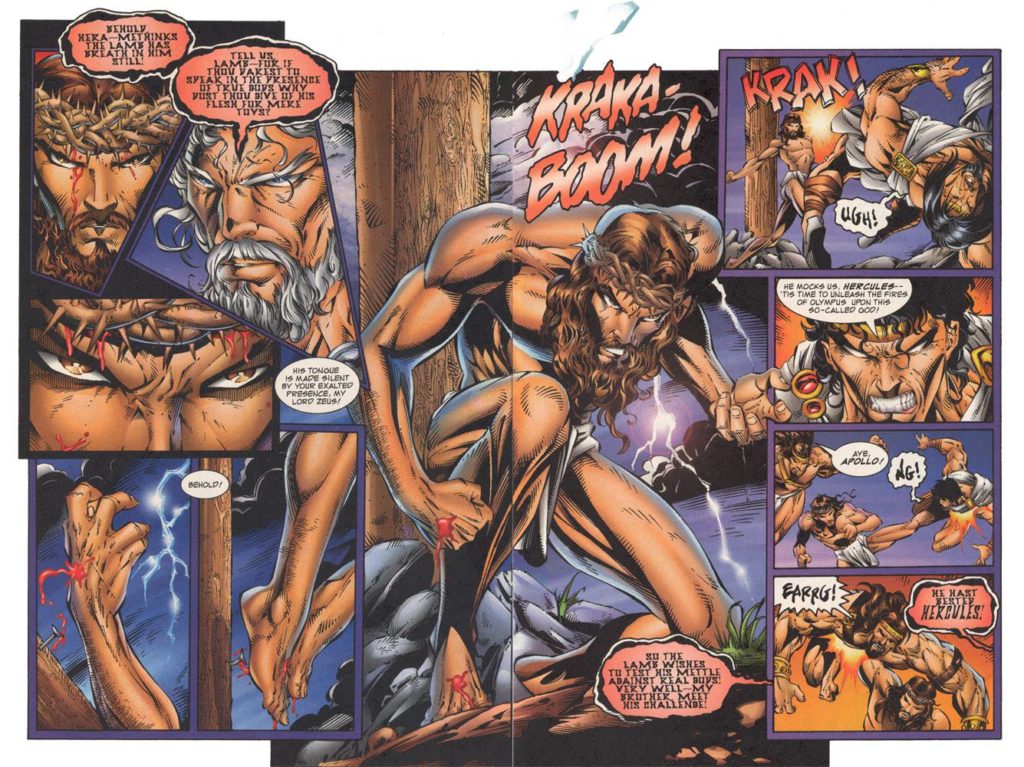Since there may be little immediate scholarly value to this, Sacred and Sequential offers the following without comment (so we’ll use CBR‘s Brian Cronin’s comments from last year on The Godyssey):
The comic opens with Avengelyne having a premonition that Zeus and the Greek gods are upset with Christianity since no one worships the Greek gods any more.
Now do note – this is a DREAM. This did not ACTUALLY happen in the comic. I suspect that that was something that occurred to the creators after the fact, as it seems kind of out of place as “just” a dream, but to be fair, they clearly DO state in the comic that it is a dream. However, as a premonition it is on point as Zeus IS pissed and it is up to Avengelyne and Glory to stop this war between the Greek gods and the angels of heaven before things went too nuts.
…ok, one comment: In 2013, this property was optioned for a movie development.
We now return to incisive, scholarly analysis.



 On Monday, the Comics Alternative podcast hosted
On Monday, the Comics Alternative podcast hosted 


